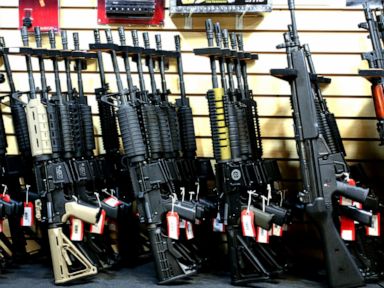
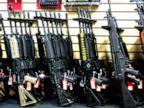

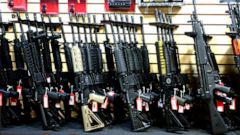
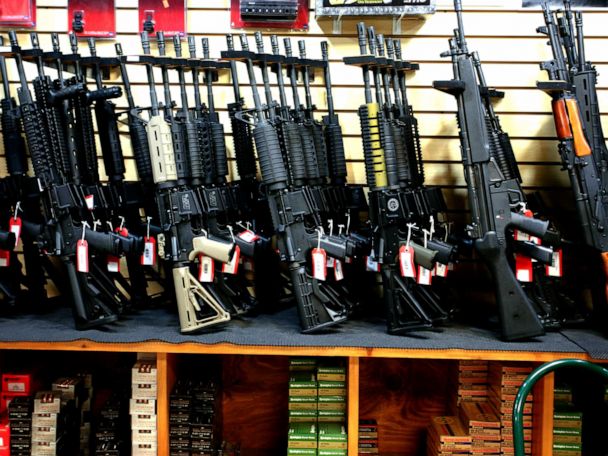
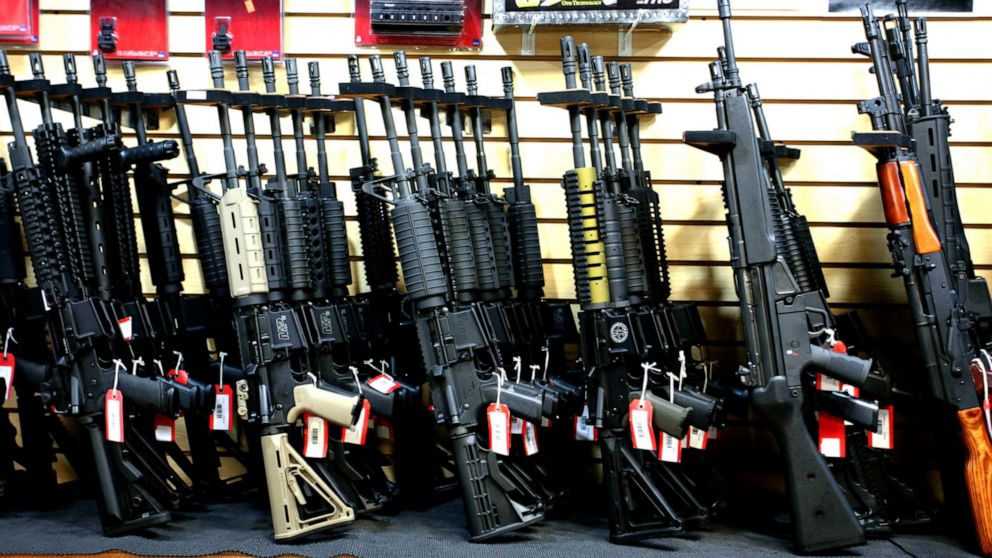
With six in 10 worried about a mass shooting in their community, Americans by a 17-point margin express confidence that stricter gun control laws would reduce such incidents, and even more endorse improved mental health monitoring and treatment to that end.
Two measures, specifically, remain overwhelmingly popular: Eighty-nine percent in a new ABC News/Washington Post poll support background checks for all gun purchases, including private and gun show sales; and 86 percent back “red flag” laws allowing the police to take guns from individuals found by a judge to be a danger.
See PDF for full poll results, charts and tables.
By a 15-point margin, 56 to 41 percent, the public supports banning the sale of assault weapons. That’s off its recent peak, 62 percent, after the shootings at Marjory Stoneman Douglas High School in Parkland, Florida, last year, but well up from its low, 45 percent in late 2015.

Beyond banning assault weapons sales, 52 percent support a mandatory buyback program in which the government would require owners to turn in their assault weapons in exchange for payment. And six in 10 in this poll, produced for ABC by Langer Research Associates, support banning high-capacity ammunition clips.
Gun policy may be debated again as Congress returns to session this week, following mass shootings across the country that killed at least 35 in August. Americans trust the Democrats in Congress over Donald Trump to handle gun laws by 51-36 percent.
Fifty-eight percent express confidence that stricter gun laws would in fact reduce mass shootings; 41 percent are skeptical. As noted, there are also especially broad hopes for improved mental health monitoring and treatment, as 76 percent think those kind of programs would reduce mass shootings.

Support for some gun laws is premised, in large part, on confidence that gun control efforts would have the desired effect. Among those who think such laws would curtail mass shootings, for example, 75 percent support an assault weapons ban. That falls to 28 percent support among those who aren’t confident such laws would work.
There’s a similar effect when it comes to a mandatory buyback and the banning of high-capacity magazines. But the gap shrinks on the two most popular measures: Background checks and red flag laws win broad majority support, even among those who are skeptical that stricter laws would reduce mass shootings.
Results also are similar when comparing people in gun-owning households (46 percent of all adults) with those where no gun is present. Support for an assault weapons ban ranges from 70 percent in non-gun households to 43 percent in gun households — still a substantial share. But more than eight in 10 people in gun households support universal background checks and red flag laws alike, as do nine in 10 in non-gun households.
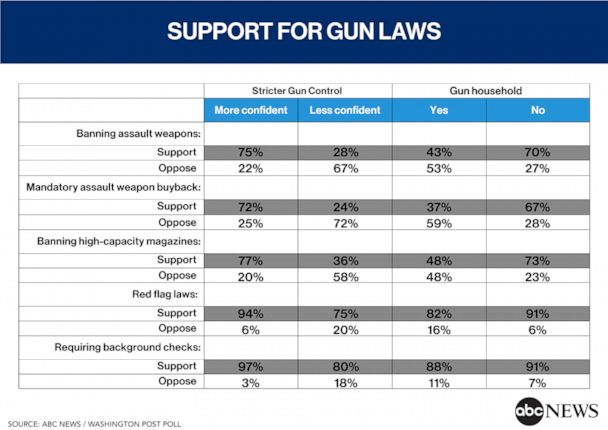
Perceived risk is another factor. Among those who are very or somewhat worried that a mass shooting could occur in their community, 67 percent support banning the sale of assault weapons. That drops to 39 percent support among those who are less concerned about an attack occurring in their area.
There are other big differences among groups when it comes to the assault weapons question. Women are 20 percentage points more likely than men to support banning the sale of these weapons, 65 percent versus 45 percent. While support is higher in urban areas than elsewhere, there’s a broad gap between urban women (of whom 73 percent support a ban) and urban men (of whom 52 percent do). And among political independents, 72 percent of women favor a ban, compared with 43 percent of men.
Education is also a sharp divider. Support for banning assault weapons rises with more education, ranging from 72 percent of those with postgraduate degrees to 46 percent of those with no more than a high school diploma. But here, too, gender influences attitudes. Among women who haven’t gone beyond high school, 55 percent back an assault weapons ban; among their male counterparts, it’s 38 percent.
Support for a ban reaches 71 percent among blacks, compared with 52 percent among whites. It differs by age, ranging from 63 percent among seniors to 49 percent among young adults. (Perhaps counterintuitively, support for banning assault weapons sales is higher among seniors even though they tend to be more conservative politically.)
And politics is a very prominent factor, as likely will soon be on display in Washington. Eighty-one percent of Democrats support an assault weapons ban, compared with 55 percent of independents and 33 percent of Republicans. The results are very similar moving from liberals to moderates to conservatives.
But again, the most broadly backed items break the mold. Mandatory background checks and red flag laws win support from at least eight in 10 Republicans and conservatives, and as many or more of all others. On these, at least, politics seem to give way.
This ABC News/Washington Post poll was conducted by landline and cellular telephone, Sept. 2-5, 2019, in English and Spanish, among a random national sample of 1,003 adults. Results have a margin of sampling error of 3.5 points, including the design effect. Partisan divisions are 28-24-37 percent, Democrats-Republicans-independents.
The survey was produced for ABC News by Langer Research Associates of New York City, with sampling and data collection by Abt Associates of Rockville, Maryland. See details on the survey’s methodology here.

